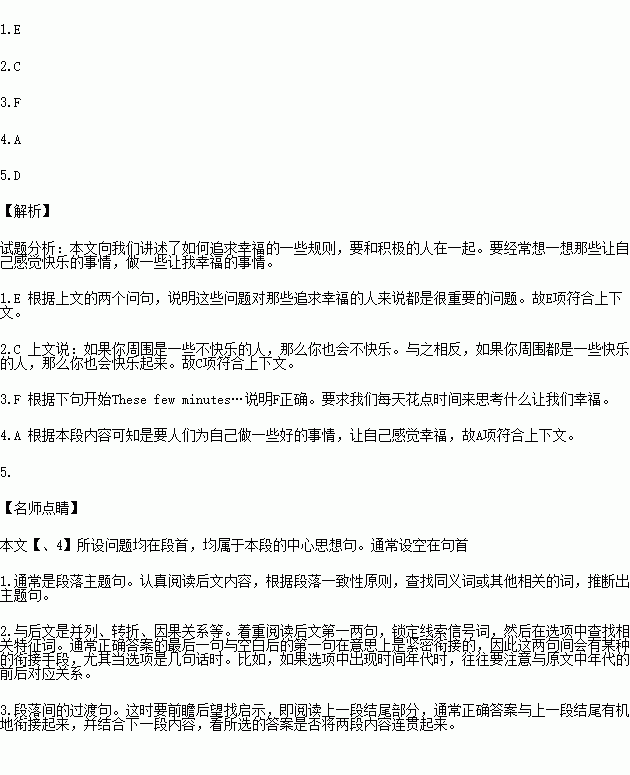题目内容
根据短文内容,从短文后的选项中选出能填入空白处的最佳选项。选项中有两项为多余选项。
Are you truly happy? Do you ever know what it means to be happy and what it takes to achieve happiness? __1.___. The following are a few tips that I follow to create happiness in my life.
※ Make a plan for attaining goals that you believe will make you happy. Your moods will very likely increase if you are going after something you value.
※ Surround yourself with happy people. It is easy to begin to think negatively when you are surrounded by people who think that way. __2.__.
※When something goes wrong, try to figure out a solution instead of being absorbed in self pity. Truly happy people don’t allow setbacks (挫折) to affect their mood because they know that with a little thought they can turn the circumstances back to their favor.
※__3.___. These few minutes will give you the opportunity to focus on the positive things in your life and will lead you to continuous happiness.
※ ___4.__. Whether you treat yourself to lunch, take a long, relaxing bath or simply spend a few extra minutes on your appearance, you will be subconsciously (下意识地) putting yourself in a better mood.
※Finding the humor in situations can also lead to happiness. Find a way to make light of a situation that would otherwise make you happy.
※Keeping healthy is another way to achieve happiness. 5. .
A.It’s also important to take some time each day to do something nice for yourself.
B.What makes one person happy may be very different from what makes someone else happy.
C.On the contrary, if you are around people who are happy, their emotional state will be infectious.
D.Being overweight or not eating nutritious foods can have a negative effect on your mood.
E.These are important questions for anyone who is seeking happiness to ask themselves.
F.Spend a few minutes each day thinking about the things that make you happy.
G.There are some tips in life that lead to happiness.


